Paris Marathon Medical Certificate UK
Apply online anytime, no appointment needed.
Get a valid, internationally accepted Paris Marathon medical certificate from a UK registered GP, confirming you're fit to participate.
Complete a secure online health questionnaire and upload any required evidence, then receive your signed certificate by email. From just £59.
✓ Most Paris Marathon medical certificates are sent same day, with guaranteed delivery by 9AM the next-morning.
LET'S GET STARTED



Standard Service
£55 - Receive your medical certificate within 2-4 business days
GET STARTED

Express Service
£59 - Your request prioritized and certificate issued within 24hrs or sooner
GET STARTED




How it works

1. Complete an online health questionnaire
No appointment required – simply complete a medical health questionnaire on our website 24/7.

2. Doctor Reviews Evidence
One of our GMC-registered GPs will review and the submitted medical evidence and make a recommendation.

3. Receive your certificate
Receive your sports medical certificate as soon as same day or within a few working days, straight to your inbox.
LET'S GET STARTEDWhat will you receive?
f you don’t have a specific form for our doctors to complete, you’ll receive a verifiable PDF medical certificate signed by a registered doctor, sent straight to your mobile device. This certificate will include:
✓ Your name and date of birth
✓ Confirmation of fitness for the sports event
✓ International acceptance for events
✓ Signature and authorization from a GMC-registered UK doctor
✓ Contact details for Medical Cert for easy verification
LET'S GET STARTED


Preparing for the Paris Marathon is exciting but gathering all the necessary paperwork can be a bit of a headache. One key requirement is getting a medical certificate that proves you’re fit to race.
Our article will guide you through obtaining this essential document, from understanding what it involves to how much it might cost in the UK. Get ready to cross that starting line with confidence.
- To run in the Paris Marathon, you need a medical certificate from a doctor stating you’re fit for athletics competitions. This proves you’re healthy enough to participate.
- You can get this certificate by using the Medical Cert UK Service and filling out an online consultation, or visiting a doctor for a marathon-specific health check.
- The cost of obtaining the medical certificate can vary. Here at Medical Cert, we offer a service for £65. These fees cover the assessment to ensure your fitness level matches the demands of the marathon.
- Some runners face delays because their certificates don’t have specific required phrases or are not signed by qualified professionals. It’s crucial that all information meets the event organiser’s standards to avoid issues.

The Paris Marathon Medical Certificate
France and some other European countries demand such certificates for sports events, making it safer for runners aiming to run in the Paris Marathon.
To get this certificate, a medical professional must confirm your fitness level. Some runners over 40 need extra checks like an electrocardiogram (ECG) and cholesterol blood tests or show they’ve had a health review in the past two years.
Additionally, regardless of age, having cardiac baseline examinations before tackling endurance challenges helps ensure safety during these taxing physical activities.
How to Obtain the Medical Certificate
To obtain the Paris Marathon medical certificate, you can utilise the Medical Cert UK Sports Medical Certificate service or schedule a consultation with a doctor in the UK. The process involves submitting to a marathon-specific medical examination and then acquiring the necessary paperwork as mandated by the event organisers.
Option 2: Consultation with a Doctor
Visiting a healthcare professional is another way to get your Paris Marathon Medical Certificate in the UK. This requires booking an appointment with a doctor who can assess your fitness for the long-distance run.
They will check if you’re healthy enough by going through a series of physical exams and possibly some tests. Once they confirm you’re fit, they issue the certificate that shows you can safely participate in the marathon.
Getting this document through a doctor gives it a personal touch since it involves direct interaction with a medical expert. They offer advice tailored to your health needs, making sure any concerns specific to taking part in such an intense activity are addressed.
After their assessment, you’ll receive your Paris Marathon certificat médical, ensuring you meet all requirements set for participants.
What’s Involved in a Marathon Medical?
A marathon medical involves a series of health checks to ensure runners can safely participate in long distances, like the Paris Marathon. Doctors check your overall health and focus on your heart’s condition.
They might ask for an electrocardiogram (ECG) and blood tests to measure cholesterol, especially if you’re over 40 years old. These tests help spot any hidden issues that could make running a risk.
During this physical examination, physicians also evaluate your fitness level.
They provide medical certificates needed for the race without extra fees during their fitness assessments. Getting checked out gives peace of mind knowing you’re ready to hit the ground running safely.
Marathon Medical Cost in the UK
If you’re planning to join mass endurance events like the Paris Marathon from the UK, you need a paris marathon medical certificate uk. This document shows you’re fit for the race.
Getting this certificate involves some costs. The basic fee for the medical check-up is £65. For those who require or are advised to get an electrocardiogram (ECG) alongside, there’s an extra cost involved.
Doctors perform these health assessments and might recommend an ECG based on your health history or age. It’s essential since rigorous activities like marathons demand high physical fitness levels.
Paying these fees ensures you meet all requirements for events such as the Paris Marathon or Triathlons in France, keeping everything smooth with insurance companies and organisers.
Importance of the Paris Marathon Medical Certificate
Having the Paris Marathon medical certificate is a must for every runner. This document proves you are in good health to participate. In France, many sports competitions, like the Paris Marathon, ask for this health proof signed by a doctor.
It makes sure all athletes are safe during the race.
This certificate not only keeps you safe but also respects the rules of the event. Undergoing cardiac baseline checks before marathons helps find any hidden heart problems. These tests look out for your well-being and ensure everyone at the marathon stays healthy.
The medical exam stops runners from pushing their bodies too hard if they’re not fit enough for such demanding physical activity.
Common Issues with the Paris Marathon Medical Certificate
Runners often face delays in getting their Paris Marathon Medical Certificate approved. This stems from the document failing to include specific phrases demanded by the event organisers, such as “NO COUNTER INDICATION TO TAKING PART IN ATHLETICS COMPETITIONS”.
Ensuring the medical certificate clearly states this can prevent unnecessary hold-ups. Also, a common oversight is not having the certificate signed by a qualified health professional, which is mandatory for participation.
Another frequent issue is related to participants over 40 years old. They need to present results from an ECG and cholesterol blood test. Sometimes runners submit outdated health checks, not realising they must be no more than two years old to be accepted.
If tests unveil any risks or abnormalities, obtaining certification becomes impossible without addressing these health concerns first. This step ensures every runner’s safety during the challenging marathon.
Now let’s move on to hearing directly from those who’ve used different services to obtain their Paris Marathon Medical Certificate through customer feedback.
Obtaining the Paris Marathon medical certificate in the UK is vital for participating in prestigious events like the Paris Marathon. Doctor’s appointments and specialised online services, such as those provided by Medical Cert UK, are essential for securing this document.
The significance of undergoing thorough fitness assessments, including ECG and cholesterol tests, cannot be overstated. By understanding the process and importance of obtaining this certificate, participants can confidently embark on their marathon journey with peace of mind knowing they have met all necessary health requirements.
A little history of the Paris Marathon
The Paris Marathon stands tall as a beacon of human resilience, an emblem of athletic excellence, and a celebration of French heritage. Its genesis in 1976 marked the fusion of historical significance, sporting fervor, and a vision to craft an unparalleled running extravaganza. To unearth the origins of the Paris Marathon, we must traverse the socio-cultural landscape of 1970s France and uncover the fervent drive that propelled this iconic race into existence.
In the aftermath of the seismic events of May 1968, France underwent a metamorphosis, embracing newfound ideals of individualism, artistic expression, and societal transformation. Against this backdrop, the concept of organizing a marathon in the heart of Paris began to germinate, spurred by the impending bicentennial commemoration of the French Revolution in 1979.
The seeds of the Paris Marathon were sown by a cadre of visionaries, including French track star Michel Jazy and esteemed journalist Jean-Pierre Worms, who harbored a shared ambition to orchestrate a long-distance spectacle through the cobblestone streets of the capital. Drawing inspiration from the burgeoning global fascination with marathons, they envisaged an event that would showcase Paris’s architectural splendor, cultural resonance, and scenic allure while fostering the ethos of athletic prowess, perseverance, and international solidarity.
With meticulous planning and unwavering determination, the organizers embarked on a quest to chart a course that would traverse the iconic landmarks and storied neighborhoods of Paris. The route was carefully curated to offer participants a panoramic vista of the city’s grandeur, from the stately boulevards of the Champs-Élysées to the historic precincts of Montmartre and the Left Bank.
On a momentous day in June 1976, history unfurled as the inaugural Paris Marathon unfolded amidst palpable excitement and anticipation. A throng of 4,200 runners, comprising elite athletes, amateur enthusiasts, and novices alike, converged at the starting line, each fueled by their own fervent aspirations and personal quests for glory.
As the race commenced, the streets of Paris reverberated with the rhythmic symphony of pounding footsteps, the exuberant cheers of spectators, and the palpable sense of camaraderie that enveloped the atmosphere. From the cobbled avenues of Montmartre to the majestic boulevards of the Right Bank, runners embarked on a journey of self-discovery and endurance, drawing inspiration from the iconic landmarks that punctuated their odyssey.
The inaugural Paris Marathon culminated in a crescendo of triumph at the Parc des Princes stadium, where Swiss athlete Serge Cotter etched his name into the annals of marathon lore, crossing the finish line in a time of 2 hours, 35 minutes, and 38 seconds. His victory not only underscored his athletic prowess but also signaled the emergence of the Paris Marathon as a global sporting phenomenon.
In the ensuing years, the Paris Marathon burgeoned in stature and acclaim, attracting an ever-expanding cohort of participants and spectators. It ascended to prominence on the international marathon circuit, drawing elite athletes, celebrities, and running enthusiasts from every corner of the globe. Its inclusion in the esteemed Abbott World Marathon Majors series further cemented its status as a preeminent fixture in the global running calendar.
The enduring allure of the Paris Marathon lies not only in its sporting prestige but also in its ability to transcend borders and unite individuals from diverse backgrounds in a shared pursuit of excellence. Each year, tens of thousands of runners converge on the streets of Paris, united by a common passion for running and a collective aspiration to push the boundaries of human potential.
Amidst the exhilaration of competition, the Paris Marathon offers participants a singular opportunity to immerse themselves in the splendor of Parisian culture and heritage. From the iconic silhouette of the Eiffel Tower to the meandering banks of the Seine, the race route unfolds as a mesmerizing tableau of architectural marvels and cultural treasures, providing runners with an unforgettable tapestry of sights and experiences.
As the Paris Marathon embarks on its fifth decade, it remains a vibrant testament to the enduring spirit of athleticism, perseverance, and international camaraderie. Whether you’re a seasoned marathoner or a first-time participant, the Paris Marathon beckons as a voyage of discovery, adventure, and personal triumph. So lace up your running shoes, heed the call of the cobblestone streets, and embrace the challenge of conquering the Paris Marathon—a journey that promises to leave an indelible imprint on your soul. And remember, don’t forget your Paris Marathon Medical Certificate, an essential document for all participants.
Get your sports medical certificate from £55
